
MARCH 2024
NETWORK NEWS
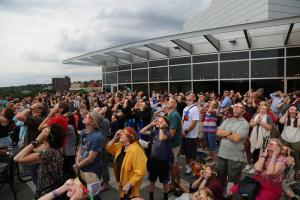
2024 Total Solar Eclipse - Monday, April 8, 2024
On Monday, April 8, 2024, a total solar eclipse will be seen in the US from Texas to Maine. States on the path of totality include: Texas, Oklahoma, Arkansas, Missouri, Illinois, Indiana, Kentucky, Ohio, New York, Vermont, New Hampshire, and Maine. All of North America will have at least a partial solar eclipse (if skies are clear).
• Compilation of public engagement resources:
nisenet.org/solareclipse
• Online workshop recording - partners sharing plans (recorded 1/9/24)
• Online workshop recording - available resources (recorded 9/12/23)
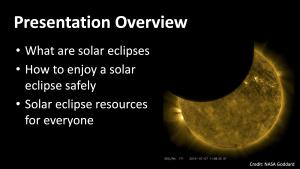
To See or Not to See: A Recurring Question About Holding Eclipse Events Off the Path of Totality
We are less than a month away from the April 8, 2024 solar eclipse! For those traveling to totality, we wish you the safest trip and clearest view. For those on the path of totality planning events, we send you wishes for clear skies and smooth, successful, and most importantly - safe events. For those off the path of totality, we send the same well wishes for smooth, successful, and safe events, with the clearest skies for experiencing whatever percentage of totality you may have. With that, there is one question that we hear often enough that we want to address it. “Is it worth holding an event if I’m not located on the path of totality?” We want to address this question with the loudest and most enthusiastic “YES” possible.
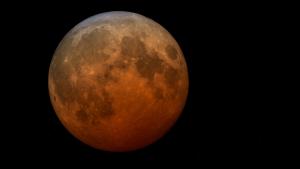
Upcoming Lunar Eclipse: March 24-25, 2024
A lunar eclipse will take place Sunday night March 24, 2024 into early morning of March 25, 2024 throughout North America.The lunar eclipse will be visible throughout North America if the sky is clear. During a lunar eclipse, the Earth blocks most of the sunlight that normally reaches the Moon. The Earth is between the Sun and the Moon.
Check exact timing for your location
• Compilation of public engagement resources:
nisenet.org/lunareclipse
UPCOMING EVENTS
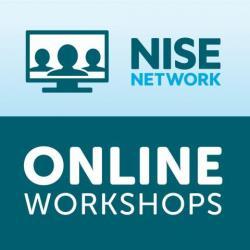
Online Workshops
The NISE Network hosts free online workshops as professional development opportunities for our partners to share with and learn from each other. Online workshops take place on select Tuesdays at 2pm-3pm Eastern. View upcoming online workshops at nisenet.org/events
Practices, Principles, and Programming for Engaging Blind and Low Vision Audiences
Tuesday, March 12, 2024
2-3pm Eastern
Please join us for this online workshop about creating more equitable experiences with Earth and space programming for blind and low vision audiences. We will hear from experts in the field who are striving to expand access to STEM resources. Listen as they discuss best practices as well as some of the tools available for others interested in this work. We will also hear from NISE Network partners who have co-collaborated with members of their communities to identify and better address the needs of visually impaired audiences locally.
Learn more and register
Wildfires & Air Quality - Providing a Relevant Portal to Get Audiences Invested in the Conversation
Tuesday, April 30, 2024
2-3pm Eastern
During this online workshop we will hear from partners engaging audiences of all ages in Earth and climate science through activities that take a closer look at the scientific and societal impacts of wildfires. Learn how to use activities from the NISE Network, NASA, and others to demonstrate the connection between global issues of climate and evolving fire seasons. Presenters will discuss strategies for making content relevant and approachable, while creating a safe space for important conversations around climate resilience to transpire. Come hear how to increase interest in your community and empower the public to take action.
Learn more and register
PARTNER HIGHLIGHTS

Landesmedienzentrum Baden-Württemberg in Karlsruhe, Germany Translates the NISE Network's "Games for the Future" Activities
Landesmedienzentrum Baden-Württemberg is a public institution that helps teachers implement the use of digital media in their schools. Staff from the institution’s Future of Learning Unit were looking for any kind of activities that foster futures thinking when they discovered the NISE Network's Games for the Future activities. Games for the Future is a set of three activities and supporting resources designed to engage participants in futures thinking and learning about the UN’s Global Goals for sustainable development. Staff at Landesmedienzentrum Baden-Württemberg adapted and translated all three activities into German, and now they are sharing these resources back under the same Creative Commons license for anyone to adapt and use.
Learn more
FEATURED ON THE WEBSITE

Talking with Children about
Tragic Events in the News
Parents, caregivers, and educators can all play an important role in helping children recover from exposure to tragic events in the news as well as traumatic experiences. Below is a compilation of resources for talking with children about tragic events in the news including war, violence, racism, and natural disasters. Navigating these conversations isn't easy, but these resources can be helpful for both children and adults.
nisenet.org/tragic-events
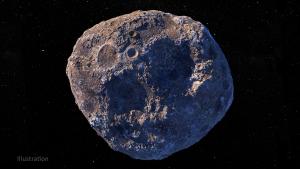
Meteorites and Asteroids
NASA’s OSIRIS-REx successfully returned to Earth in September 2023 with material from asteroid Bennu. The Psyche mission that launched in October 2023 will visit a metal asteroid. Meanwhile the Lucy spacecraft encountered its first asteroid Dinkinesh in November; over the course of its mission, Lucy will explore the belt of asteroids known as the Jupiter Trojan asteroids.
nisenet.org/asteroids
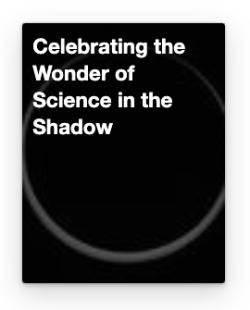
COMMUNITY RESOURCES AND ANNOUNCEMENTS
New Solar Eclipse Public Engagement Publication
The Bulletin of the American Astronomical Society (BAAS) has published a new special issue entitled, "Celebrating the Wonder of Science in the Shadow. The publication is available online, and is free to read and download.
Learn more
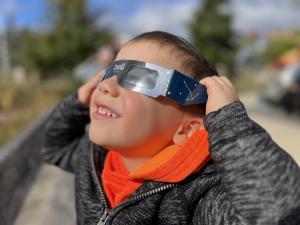
Protect and store your solar viewing glasses
Store your solar viewing glasses safely to use again in the future; you don't have to wait for a solar eclipse to use your glasses to view the Sun! STARnet has a fun activity where you can make a protective case for your solar-viewing Glasses, available in both English and Spanish.
Partner tip: Churro bags fit solar eclipse glasses well!
Role Model Strategies Guide
Seeing the variety of backgrounds, experience, and perspectives of STEM professionals can help inspire and motivate youth who might not otherwise “see” themselves in STEM.
Learn more
Interested in one of our exhibitions?
There’s a waiting list for that!
If you are interested in hosting the Nano exhibition, or the Sun, Earth, Universe exhibition, please reach out to Christina Leavell, NISE Network Community Manager, to be added to a waiting list.
Contact us
SCIENCE IN THE NEWS
SCIENCE COMMUNICATION NEWS
The winners of the 2024 Dance Your PhD contest have been announced! Dance Your Ph.D. has challenged scientists to build artistic entry points to science. Winners are chosen in many different categories. This year’s overall winner, Kangaroo Time, highlights individuality and conformity in kangaroos and celebrates the value of diversity in all species.
NISE Network resources:
• STEAM Creative Expression resources
NANOTECHNOLOGY NEWS
Why do blueberries look blue? Nanostructures in the berries' waxy coating make them appear blue to people. Devising ways to mimic a blueberry’s color-forming coating might one day provide a new way to give plastics or makeup a blue tint.
NISE Network resources:
• Microscopes and Tools for the Small
GENETICS NEWS
Gardeners can now grow a genetically modified purple tomato made with DNA from a purple snapdragon, which is an edible flower. Home gardeners in the U.S. can now purchase seeds for a tomato the color of a concord grape with plum-colored flesh. The genes not only provide pigment, but high levels of anthocyanin, a health-promoting compound.
NISE Network resources:
SPACE & RADIO NEWS
Were solar flares responsible for the AT&T service outage in February? Not likely, but the outages did end up focusing a lot of the public’s attention on the Sun.
NISE Network resources:
NEUROSCIENCE NEWS
Early experiments with neural implants have a handful of companies racing to develop this futuristic Brain-Computer Interface (BCI) health technology that allows people to communicate by translating neural signals into text and speech.
NISE Network resources:
• Brain and Neuroscience resources
SPACE NEWS
A NASA-funded study suggests future astronauts and mission equipment might experience moonquakes, which could affect the planned Artemis III mission.
NISE Network resources:
CLIMATE CHANGE NEWS
Public opinion about climate change varies widely depending on where people live in the United States. The newest Yale Climate Opinion Maps with 2023 data are now available to explore
NISE Network resources:
CHEMISTRY NEWS
In the face of looming regulations and growing liability risks, companies are developing an array of approaches to managing waste containing per- and polyfluoroalkyl substances (PFAS), also known as “forever chemicals.”
NISE Network resources:
QUANTUM NEWS
Scientists have created a reprogrammable light-based processor, a world-first, that they say could usher in a new era of quantum computing and communication.
NISE Network resources:
STEM THROUGHOUT THE YEAR
Discover activity ideas for incorporating current science, engineering, and technology content into events, special programming, holidays, and seasonal activities by visiting: nisenet.org/seasons
March
- What’s Up Skywatching Tips from NASA
- Women's History Month (March) - celebrate people in STEM
- Severe Weather Awareness Weeks (March, dates vary by state)
- World Futures Day - Young Voices (March 1)
- Dr. Seuss Day (March 2)
- Exploring Materials - Oobleck activity
- Oobleck gets its name from the Dr. Seuss book, Bartholomew and the Oobleck, where a gooey green substance, Oobleck, fell from the sky and wreaked havoc in the kingdom
- Horton Hears a Who! Storytime
- World Wildlife Day (March 3)
- World Engineering Day for Sustainable Development (March 4)
- Groundwater Awareness Week (March 10-15)
- Brain Awareness Week (March 11-17)
- Pi Day and International Day of Mathematics (March 14)
- National Learn about Butterflies Day (March 14)
- Spring Equinox (March 19)
- Solstices and equinoxes provide opportunities for planning quarterly programs related to the Earth, Sun, and Moon (astronomical seasons) or your local environment (meteorological seasons)
- NASA Space Place seasons resources
- NISE Network Moon resources
- World Water Day (March 22)
- Earth Hour (March 23)
- World Meteorology Day (March 23)
- Lunar Eclipse: March 24-25, 2024
- NanoDays (March 30-April 7)
April
- NanoDays (March 30-April 7)
- Citizen Science Month (April)
- National Kite Month (April)
- Global Astronomy Month (April)
- Mathematics and Statistics Awareness Month (April)
- National Arab American Heritage Month (April) - celebrate people in STEM
- National Public Health Week (first week in April) and World Health Day (April 7)
- International Dark Sky Week (first week of April)
- Star Trek First Contact Day (April 5)
- Solar Eclipse (April 8, 2024)
- Yuri's Night (April 12)
- National Robotics Week / RoboWeek (second week in April)
- World Quantum Day (April 14)
- World Art Day (April 15)
- Earth Day (April 22) and National Environmental Education Week
- DNA Day (April 25)
NATIONAL MEETINGS AND CONFERENCES
-
International Symposium on Public Communication of Science and Technology (PCST), April 10-12, 2024, Zacateca, Mexico
-
Association of Children's Museums (ACM) InterActivity, May 15-17, 2024, Madison, Wisconsin
Learn more -
Visitor Studies Association (VSA) Conference 2024, July 16-19, 2024, Saint Paul, Minnesota
Learn more -
ASTC Conference, September 27 - October 1, 2024, Chicago, Illinois
Learn more -
REVISE InformalScience.org conference calendar
-
National Science Teaching Association (NSTA) Conferences
